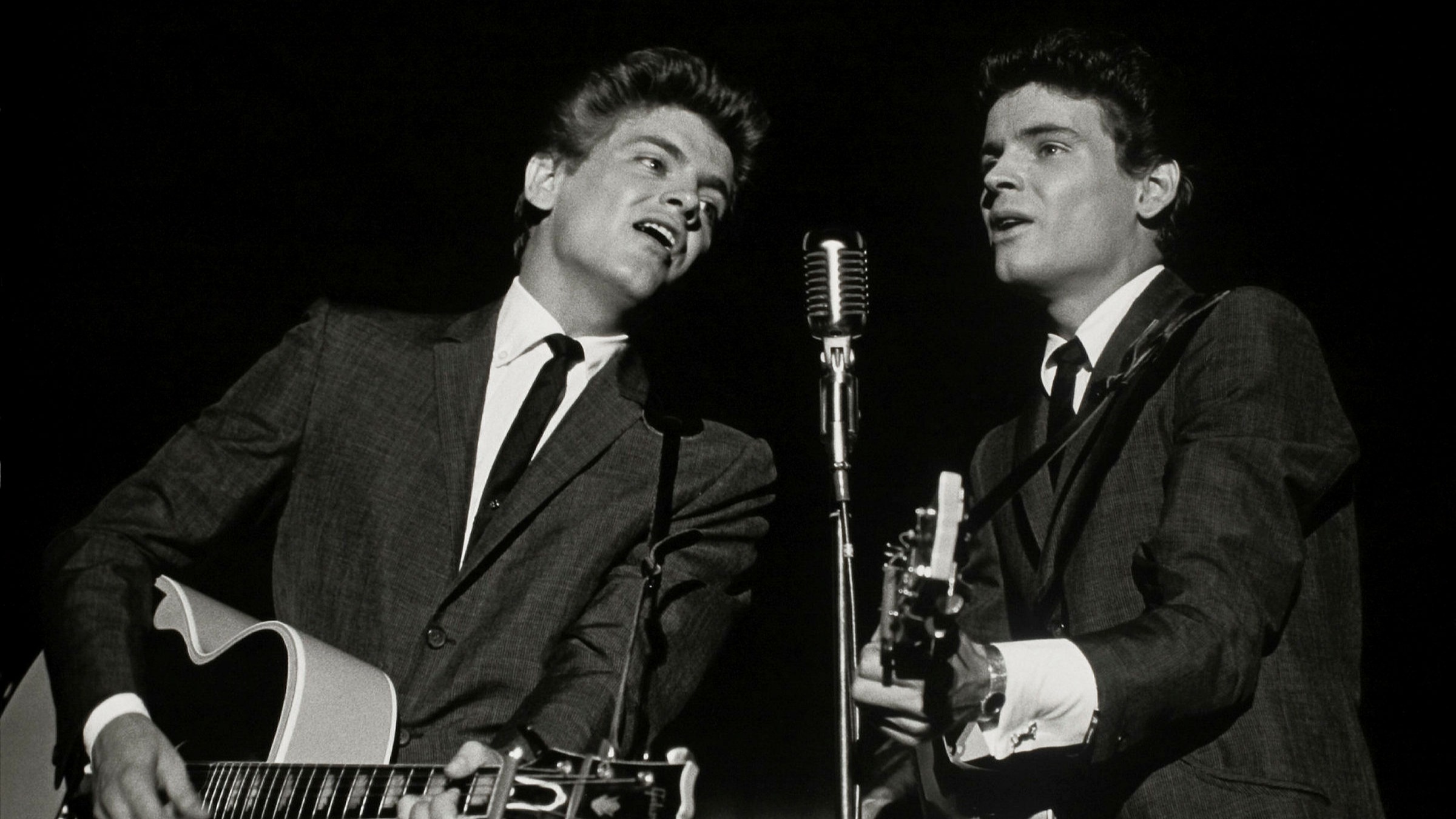Early last year, at the Country Music Hall of Fame’s 2020 “Big Night at the Museum” — usually a lavish Nashville extravaganza but this time a virtual event — Emmylou Harris performed a simple, old-style duet with Rodney Crowell: two acoustic guitars, two stools, no backing, no frills. The song? That old warhorse, the ultimate slow-dance heartbreak ballad, “Love Hurts”.
It’s 60 years since the song’s debut; Harris herself has been singing it for more than 45. But over the course of its life, it has shown an unusual agility in hopping across styles and genres without undergoing any significant changes.
It was the Everly Brothers,that clean-cut close-harmony hit-machine, who first released the song, on their 1961 album A Date with the Everly Brothers. But it wasn’t released as a single, and it was Roy Orbison’srelease of the song the same year as a B-side to “Running Scared” that signalled early success. While the Everlys had taken it slow and moody, Orbison’s version is so hilariously over-orchestrated that it seems to our ears almost like a joke. Nevertheless, that inimitable voice with its signature half-strangled delivery took the song to its first chart position: number five in Australia.
Orbison’s massed ranks of swooning strings and horns were probably not what the song’s creator, Boudleaux Bryant, had had in mind. Bryant, who was born in Georgia in 1920, was with his wife Felice a two-person song-factory. “Love Hurts” was initially credited to Boudleaux alone but later to the duo, and between them the pair created hundreds of songs for dozens of artists, including other memorable Everly Brothers numbers such as “All I Have to Do Is Dream”, “Wake Up Little Susie” and “Bye Bye Love”. The Bryants’ reach extended beyond country singers and Brylcreemed crooners, to Buddy Holly, The Beach Boys and more. Even as far as Bob Dylan, whose “Take a Message to Mary” — although in his hands it sounds like one of his favourite traditional outlaw ballads — is a cover of another Bryant/Everly Brothers release.
The Bryants’ songs are not complicated, lyrically: “Love Hurts” boasts the lines “I really learned a lot/Love is like a stove/burns you when it’s hot”, and that’s about as deep as it gets. But their tunes and harmonies have a simple sweetness that often perfects the three-minute-track trick of changing key and mood halfway through, and rising to a bathetic climax that apparently delights performers and listeners equally.
Roll on a decade, and “Love Hurts” reappears in another stunning close-harmony duet: Gram Parsons and Emmylou Harris,in the country/blues/rock blend Parsons made his own, sang it together on the Grievous Angel album of 1973 which was released just after Parsons’ death at only 26. Harris’s own very real heartbreak at the tragedy of this loss gave the song a special resonance: she has recorded it twice more, in solo versions, and included it in her live sets ever since.
A couple of years later, the song makes another leap, this time altogether more surprising. Nazareth,a heavy metal band from Dunfermline in Scotland, included a rock treatment of “Love Hurts” on their 1975 album Hair of the Dog, and here the croaky, snarling vocals of lead singer Dan McCafferty sound as if the pains of love are not just a personal affront but also giving him a really sore throat. The band’s single version in fact proved the song’s most successful ever, reaching the top 10 in the US and number one in several other countries. They were still performing it 30 years on, though more decorously.
Stranger still was to come, later in 1975. English drummer and singer-songwriter Jim Capaldi,though better known for forming the psychedelic rock band Traffic with Steve Winwood, and for writing a handful of Winwood numbers, released a solo version of “Love Hurts” that reached number four in the UK charts. How it did that is hard to see, in hindsight, since it’s a very weird hybrid: Capaldi chose to give the ballad a perky, flippy-dippy disco beat that is completely at odds with the lyrics of the song.
And then there was Cher. Also in 1975, her first take on “Love Hurts” was for the Stars album. In 1991 she revisited it with another version,this time richly orchestrated, with crashing piano chords and a backing choir, for the album Love Hurts, complete with high-production-value video and tour. The song must have been something of a favourite: she included it in sets for one of her farewell tours.
Despite its mauling in the 1970s versions, the song survives and thrives. In cover after cover — including Rod Stewartin 2006. In films from The Full Monty to Toy Story 3 and Halloween II. In advertisements, video games and television programmes — including, perhaps ironically, the hit ITV series Band of Gold (1995-97) about a group of sex workers (sung by Barbara Dickson). Heartbreak, it seems, is never out of style.
What are your memories of ‘Love Hurts’? Let us know in the comments section below.
‘The Life of a Song Volume 2: The fascinating stories behind 50 more of the world’s best-loved songs’, edited by David Cheal and Jan Dalley, is published by Brewer’s.
Music credits: Milestone Records; SMD Music; Rhino/Warner Records; Salvo; UMC (Universal Music Catalogue); Geffen; J Records; Union Square Music
Picture credit: Michael Levin/Corbis via Getty Images
